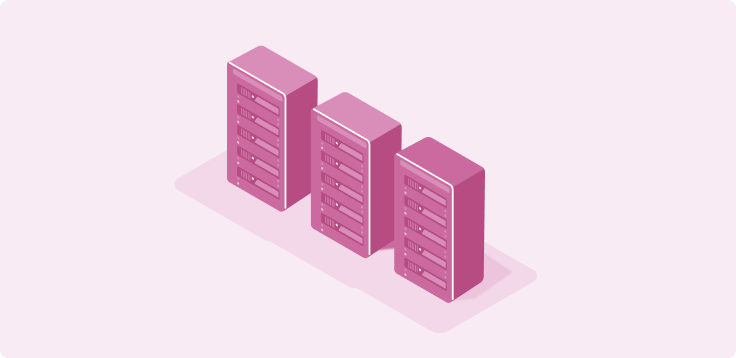Aug 26, 2024
IPv4, Let’s Talk About It: The Backbone of Proxies and Data Transmission

In a world full of acronyms, some of them are pretty awesome, even if they work quietly in the background. One such element is IPv4, or Internet Protocol version 4. While it might sound like tech jargon, IPv4 is crucial to the internet as we know it today, playing a foundational role in data transmission and proxies. So how about we explore what IPv4 is, why it’s essential, and how it connects with proxies to facilitate seamless online activities.
What is IPv4?
IPv4, or Internet Protocol version 4, is the fourth iteration of the Internet Protocol, which is used to identify devices on a network through an addressing system. IPv4 addresses are 32-bit numeric labels, expressed in dot-decimal notation (for example, 192.168.1.1), and they are vital for routing information across the internet. Think of IPv4 as the postal system of the internet—without it, data wouldn't know where to go.
Initially introduced in 1983, IPv4 has been the standard protocol for the majority of internet communications for decades. With over 4 billion unique addresses available, IPv4 has served its purpose well, enabling the rapid growth of the internet. However, as the number of internet-connected devices has surged, the availability of these addresses has become increasingly scarce—a problem that led to the creation of IPv6, the successor to IPv4.
So, if you've ever worked with an IT team, you'll know that the above is the stuff their dreams are made of!
Why is IPv4 Still Relevant?
Despite the emergence of IPv6, IPv4 remains relevant and widely used. This is primarily due to the sheer size of the existing IPv4 infrastructure, which is deeply embedded in the global internet architecture. Transitioning to IPv6 on a large scale is complex and costly, leading many organizations to continue relying on IPv4 for the time being.
Moreover, the introduction of technologies like Network Address Translation (NAT) has extended the lifespan of IPv4 by allowing multiple devices to share a single public IP address. This has alleviated some of the pressure caused by the limited number of IPv4 addresses.
The Role of IPv4 in Proxies
Proxies are intermediaries that route requests between a user and the internet. When you use a proxy, your internet traffic goes through this intermediary server, which can mask your IP address, provide anonymity, and enable access to geo-blocked content. Here’s where IPv4 comes into play.
Most proxies in use today rely on IPv4 addresses. These proxies are critical for various applications, including web scraping, bypassing content restrictions, enhancing privacy, and conducting market research. Let’s take a closer look at how IPv4 and proxies work together:
1. IP Address Masking: When you connect to a proxy, your original IPv4 address is hidden, and the proxy’s IPv4 address is used instead. This process helps protect your identity and location, making it harder for websites and services to track you.
2. Bypassing Geo-Restrictions: Some websites restrict access based on a user’s geographical location. By using an IPv4 proxy with an IP address from a different region, you can access content that would otherwise be unavailable in your area.
3. Web Scraping: Businesses and researchers often use proxies to scrape data from websites without being detected. By rotating between different IPv4 addresses, proxies can avoid getting blocked by websites that limit the number of requests from a single IP address.
4. Anonymity and Privacy: In an era where online privacy is increasingly important, IPv4 proxies provide an additional layer of security. By masking your real IP address, proxies can help protect your online activities from prying eyes.
The Future of IPv4 and Proxies
As we look toward the future, the transition to IPv6 will continue to gain momentum. However, IPv4 isn’t going away anytime soon. The massive investment in IPv4 infrastructure and the slow adoption of IPv6 mean that IPv4 will remain in use for years to come.
For proxy providers, this dual-protocol world presents both challenges and opportunities. On one hand, they must ensure compatibility with IPv6 as more websites and services begin to adopt the new protocol. On the other hand, IPv4 will continue to be a valuable resource, especially as the demand for proxies grows in sectors like data scraping, online privacy, and digital marketing.
So really, let’s be honest, IPv4 is A Pillar of the Modern Internet
IPv4 might not be the most glamorous topic in the world of technology, but its importance cannot be overstated. As the backbone of internet communication, it’s the foundation upon which proxies operate, enabling a wide range of activities from data collection to secure browsing.
While the shift to IPv6 is inevitable, IPv4’s role in the internet ecosystem will persist for the foreseeable future. Whether you’re using a proxy for research, privacy, or simply to access blocked content, understanding IPv4 is key to appreciating how these tools work and why they remain so vital in our digital lives.
So, the next time you browse the web, remember that behind every click, every data packet sent, and every website accessed, there’s a good chance IPv4 is playing a part in making it all possible.
You might like these, too
Price Monitoring · 5 minutes read
Data Collection · 4 minutes read
Data Collection · 5 minutes read
